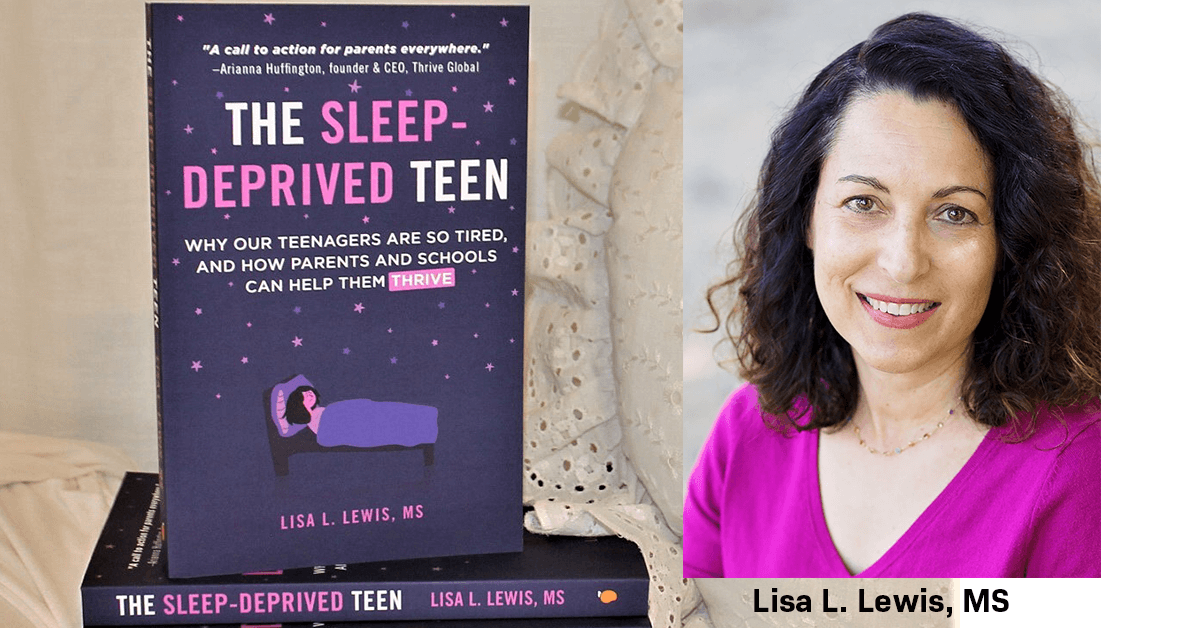June 8, 2022
Sleep is a study strategy, sleep is a mood regulator, and there are practical ways for teens to improve the quantity and quality of their sleep. Those were the takeaways of my column: “Three Things to Teach Your Teen About Sleep and Your Brain.”
When I talk to high school students, the topic of their sleep—or lack of it—often comes up. So I was delighted to read an early copy of Lisa L. Lewis’ new book, “The Sleep-Deprived Teen: Why Our Teenagers Are So Tired, And How Parents And Schools Can Help Them Thrive.”
This book is an outgrowth of Lewis’ previous work on the topic, including her role in helping get California’s landmark legislation on healthy school start times passed. Here are a few of the questions I had for her—because we all shoulder some responsibility for systems that keep our kids sleep-deprived.
DFK: Why this topic? What gets you fired up about sleep & our teens?
Lewis: I didn’t fully realize the scope of the issue until I started looking into it in 2015—the year my son entered high school. I knew his school’s 7:30 a.m. start time felt much too early,…

